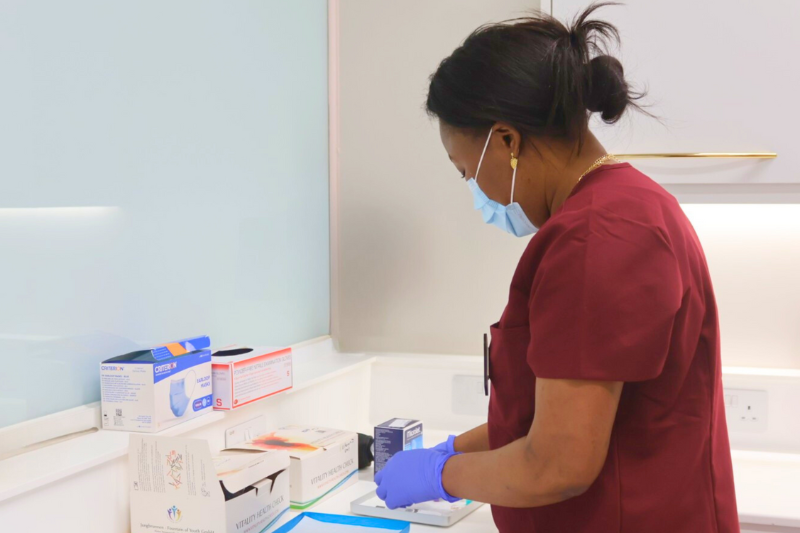Most people visit the dentist to fix a cavity or get a cleaning, and that’s where it stops. But what if we told you your mouth is more than just a place to chew food or flash a smile? It’s actually a mirror for your entire body. In fact, your oral health plays a much bigger role in your optimal health than most people realise.
From your heart to your immune system, what happens in your mouth doesn’t stay there. The connection between oral health and total wellness is real, and science is only making that link stronger with time. If you’ve been ignoring your dental care, now’s a good time to rethink your approach to health, from the gums up.
The Mouth-Body Connection: What It Means
Your mouth is full of bacteria. While some of it is harmless, poor brushing and flossing habits can let harmful bacteria grow and cause problems like gum disease or tooth decay. But it doesn’t stop there. These bacteria can travel through the bloodstream and reach other parts of the body, contributing to larger health problems.
Inflammation in the gums, for example, is not just a local issue. It can spread and fuel inflammation elsewhere in the body. Chronic inflammation is known to play a role in heart disease, diabetes, arthritis, and more.
So if you’re aiming for optimal health, you can’t skip oral care. A healthy mouth isn’t just nice to have; it’s a key piece of the puzzle.
Oral Health and Heart Health
Studies have shown a clear link between gum disease and heart disease. People with gum disease are more likely to have high blood pressure, clogged arteries, and other heart problems. It’s believed that bacteria from the mouth can enter the bloodstream, stick to the arteries, and increase the risk of blockages.
While brushing alone won’t eliminate heart disease risk, it’s a simple habit that supports better outcomes. Maintaining oral health through daily hygiene and regular dental visits can support your heart and help keep you on track toward optimal health.
Diabetes and Oral Health Go Hand-in-Hand
There’s a two-way street between diabetes and oral health. High blood sugar can weaken the gums and make it easier for infections to develop. At the same time, gum disease can make it harder to control blood sugar levels, creating a frustrating cycle.
Managing your oral health makes it easier to manage your overall condition. And for those trying to prevent diabetes in the first place, keeping your mouth healthy is one more tool to protect your body.
Pregnancy and Oral Health
Pregnant women often hear about the importance of nutrition, sleep, and stress management. But oral health also deserves a spot on that list. Hormonal changes during pregnancy can make gums more sensitive and more prone to inflammation.
Poor oral health during pregnancy has been linked to premature births and low birth weight. For moms focused on optimal health, both for themselves and their baby, regular dental checkups and gentle home care are essential.
The Role of the Immune System
Your immune system works hard to fight off infections, but if your mouth is constantly inflamed or infected, it becomes harder for your body to keep up. Gum disease creates an open door for bacteria to enter the body, putting your immune system on high alert all the time.
Chronic oral infections can weaken your body’s ability to respond to other health issues. In contrast, maintaining a clean, healthy mouth helps your immune system stay focused where it’s needed most, on protecting you from bigger threats.
Mental Wellness and Self-Esteem
Optimal health isn’t just about what your lab results say; it’s also about how you feel. Struggling with tooth pain, bad breath, or stained teeth can affect your self-esteem and confidence in social situations. These emotional impacts can spill over into anxiety, depression, or even isolation.
Healthy teeth and gums often lead to better moods, more smiles, and more confidence. That emotional well-being is a key part of the optimal health equation, and it starts with simple, consistent oral care.
Tips to Support Both Oral and Overall Health
Achieving optimal health means creating routines that support your whole body. Here are a few ways to make sure your mouth is helping, not hurting, your wellness goals:
- Brush your teeth twice a day with fluoride toothpaste
- Floss daily to remove plaque between the teeth
- Eat a balanced diet low in sugar and processed foods
- Stay hydrated to support saliva flow, which helps fight bacteria
- Don’t skip regular dental checkups, even if your teeth look fine
- If you have a chronic health condition, let your dentist know; they can adjust your care plan to help
Final Thoughts
It’s easy to see oral health as something separate from the rest of your body, but that couldn’t be further from the truth. Your teeth and gums are closely connected to the systems that keep you alive, strong, and thriving.
Whether you’re focused on heart health, blood sugar, immunity, or mental clarity, caring for your mouth gives you a strong foundation. If optimal health is your goal, make oral health a regular part of the plan. A cleaner smile might just lead to a healthier, longer life.





Comments